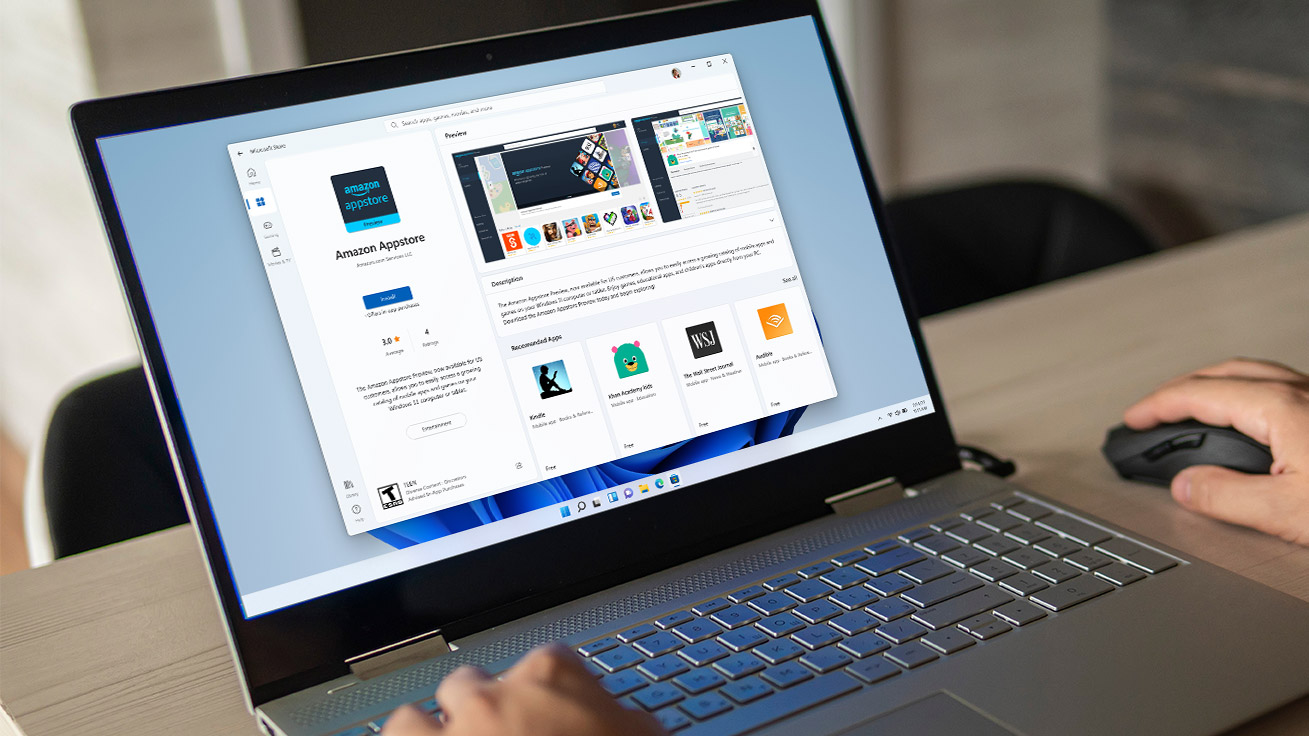Android app support in Windows 11 comes with a few nasty surprises
Make sure you can actually use Windows 11’s best new feature

One of the most exciting new features coming to Windows 11 is its ability to run Android apps, but Microsoft has revealed a few requirements that may dampen people’s enthusiasm.
According to Microsoft’s new FAQ for the feature, if you want Android apps to run on your PC, you’ll need to meet certain requirements to do so.
So, you’ll need to have a device that runs Windows 11 version 21H2, or later, which is the version that introduces the new feature.
You’ll also need a solid state drive (SSD) and have a modern x64 or ARM64 processor. While these requirements aren’t too bad, and most people running Windows 11 will have them, things then become a little trickier.
Microsoft says you need 8GB of RAM minimum, but16GB is recommended. That 16GB recommendation is quite surprising for a feature we wouldn’t have thought was too demanding (these are apps that are supposed to run on smartphones, after all).
However, the 8GB minimum setting means people running Windows 11 on devices with 4GB of RAM – which is technically possible – won’t be able to use this feature. So low-powered, older, or embedded devices, which may have benefitted the most from getting Android apps, will be left out.
You’ll also need to turn on the Virtual Machine Platform, which is a setting found in Windows 11’s Control Panel.
Get daily insight, inspiration and deals in your inbox
Sign up for breaking news, reviews, opinion, top tech deals, and more.
There’s also one final requirement that may annoy people. As we’ve reported before, Windows 11 uses the Amazon Store for Android apps, rather than Google’s own Play Store.
This means you don’t get the vast collection of apps that you’d find in the Play Store. Nor can you use Play Store credit to buy apps, and any apps or games you’ve bought on your Android devices through the Play Store will need to be re-bought.
You’ll also need an Amazon account as well. While many people probably already have one, due to the popularity of the online store, there will be plenty of people who don’t want an Amazon account for various reasons. Having to sign up for yet another account you don’t want may be too much of an ask.
Analysis: Does this kill the Android app hype in Windows 11?
Are these requirements enough to kill off some people’s excitement for getting Android apps in Windows 11? While the potential of having thousands of apps instantly available in Windows 11, and which can be installed via the Microsoft Store like other Windows 11 apps, remains exciting, we have to admit having our hype has reduced a bit.
The 8GB RAM requirement, for example, means that hopes of making an old, less powerful, Windows 11 device essentially an Android tablet, are less likely now.
Microsoft’s decision to go with the Amazon Appstore also continues to baffle and annoy. Many of us will have a large library of Android apps installed on our devices, and the thought that we’d have to pay for certain apps and games again because we bought them through Google Play instantly puts a damper on things.
If you want to give Android apps a go in Windows 11, you can download the Windows 11 KB5010414 update, which is an optional update that adds an early look at how Android apps will be integrated into the operating system. At the moment, this feature is only available in the US.
- Here's how to download Windows 11
Via WindowsLatest

Matt is TechRadar's Managing Editor for Core Tech, looking after computing and mobile technology. Having written for a number of publications such as PC Plus, PC Format, T3 and Linux Format, there's no aspect of technology that Matt isn't passionate about, especially computing and PC gaming. He’s personally reviewed and used most of the laptops in our best laptops guide - and since joining TechRadar in 2014, he's reviewed over 250 laptops and computing accessories personally.